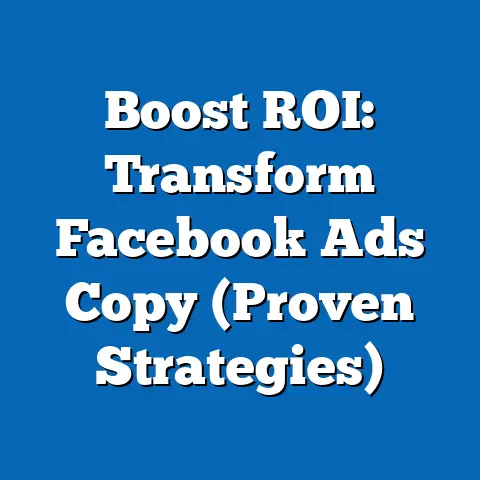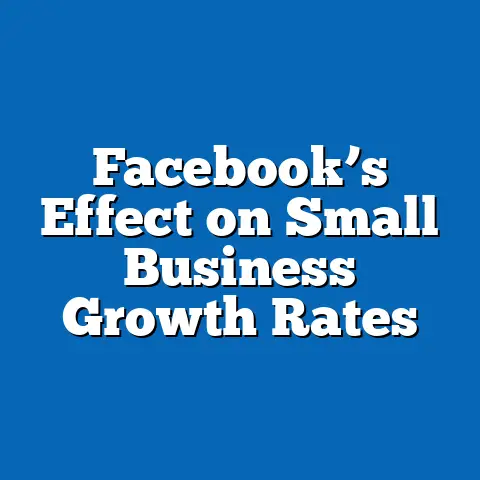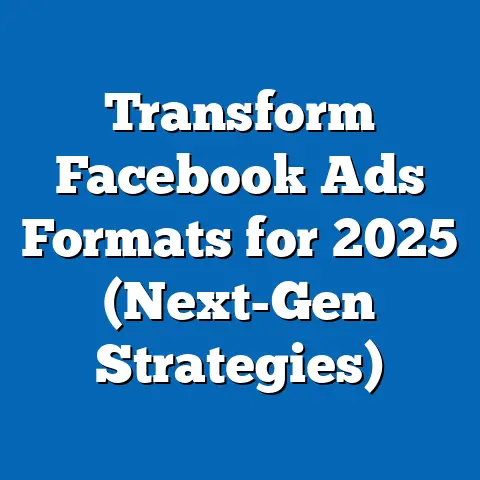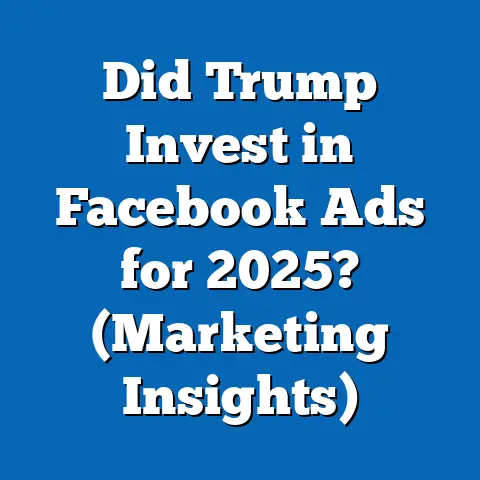Should I Let Facebook Target Ads to Me? (Expert Insights)
Smart homes are rapidly becoming the norm.
I’ve watched them evolve from futuristic concepts to everyday realities, transforming our living spaces into interconnected hubs of convenience and efficiency.
From smart thermostats learning our temperature preferences to security systems offering remote monitoring, technology is seamlessly integrating into our lives.
This integration extends beyond convenience, as these devices often collect user data to personalize and enhance our experiences.
This personalization concept is also prevalent in the world of digital advertising, particularly on platforms like Facebook.
But, should we embrace this level of personalization?
That’s the question I want to explore: “Should I let Facebook target ads to me?” It’s a question that balances convenience with concerns about privacy, and it’s not always an easy answer.
Let’s delve into the benefits and drawbacks of targeted advertising, drawing on expert insights to help you make an informed decision.
Understanding Targeted Advertising
Targeted advertising is the practice of delivering advertisements to specific audiences based on their demographics, interests, online behavior, and other personal data.
Platforms like Facebook excel at this, leveraging the vast amount of information they collect about their users to create highly personalized ad experiences.
The technology behind targeted ads is sophisticated.
It relies on algorithms that analyze user data gathered through various means, including:
- Cookies: Small text files stored on your browser that track your browsing activity.
- User Behavior Tracking: Monitoring your interactions on Facebook, such as likes, shares, comments, and page visits.
- Demographic Data: Information you provide when creating your Facebook profile, such as age, gender, location, and education.
- Interest-Based Data: Information inferred from your online activity, indicating your hobbies, interests, and preferences.
These algorithms process this data to identify patterns and predict which ads are most likely to resonate with you.
The result is a feed filled with ads that, in theory, are more relevant and engaging than generic, untargeted ads.
The effectiveness of targeted advertising is well-documented.
Studies show that targeted ads can lead to significantly higher engagement and conversion rates compared to non-targeted ads.
For example, a study by HubSpot found that targeted ads have a 50% higher click-through rate (CTR) than non-targeted ads.
This increased engagement translates into better ROI for advertisers, making targeted advertising a cornerstone of modern digital marketing strategies.
Takeaway: Targeted advertising uses your data to show you ads you’re more likely to be interested in, leading to higher engagement and better results for advertisers.
The Benefits of Allowing Facebook to Target Ads
Allowing Facebook to target ads to you isn’t just beneficial for advertisers; it can also offer several advantages for consumers.
I’ve personally experienced the benefits of targeted ads, discovering products and services I wouldn’t have otherwise known about.
One of the primary benefits is the opportunity to discover relevant products, services, and promotions.
Instead of being bombarded with irrelevant ads, you’re more likely to see ads for things that genuinely interest you.
This can save you time and effort by surfacing products and services that align with your needs and preferences.
For example, if you’re a fitness enthusiast who frequently engages with fitness-related content on Facebook, you’re more likely to see ads for workout gear, healthy food options, or local fitness classes.
This can be a convenient way to discover new products and services that enhance your active lifestyle.
Expert insights also highlight how targeted advertising can enhance the overall user experience.
Dr. Jennifer Aaker, a consumer behavior researcher at Stanford University, notes that “personalized advertising can create a more relevant and enjoyable online experience for consumers, as it reduces the clutter of irrelevant ads and surfaces information that is more likely to be of interest.”
I’ve seen this firsthand.
Targeted ads have introduced me to new restaurants, travel destinations, and even career opportunities that aligned with my interests and goals.
These experiences have made my online interactions more engaging and valuable.
Consider the case of Sarah, a young professional who discovered a new online course on project management through a targeted ad on Facebook.
Sarah had been considering advancing her career but wasn’t sure where to start.
The ad, which was targeted based on her job title and interests, led her to a course that perfectly matched her needs.
Sarah enrolled in the course and, within a few months, landed a promotion at her company.
Sarah’s experience is just one example of how targeted ads can positively impact people’s lives by connecting them with relevant opportunities and resources.
By allowing Facebook to target ads to you, you’re essentially curating your online experience to be more personalized and aligned with your interests.
Takeaway: Targeted ads can help you discover relevant products and services, enhance your online experience, and even lead to new opportunities.
The Drawbacks and Concerns of Targeted Advertising
While the benefits of targeted advertising are undeniable, it’s crucial to acknowledge the potential drawbacks and concerns.
I’ve often wondered about the extent of data collection and how it might impact my privacy.
One of the primary concerns is privacy.
The extensive data collection practices of platforms like Facebook raise questions about how your personal information is being used and protected.
Many users feel uneasy about the amount of data being collected and how it’s being used to create detailed profiles for advertising purposes.
Data security is another significant concern.
The risk of data breaches and identity theft is ever-present, and the more personal information that’s stored online, the greater the potential for misuse.
I’ve personally received phishing emails that felt eerily tailored to my interests, raising questions about where that information originated.
Furthermore, some critics argue that targeted advertising can be manipulative and exploitative.
By leveraging psychological insights and behavioral data, advertisers can create ads that are highly persuasive and potentially misleading.
This can lead to impulsive purchases or subscriptions to services that you may not actually need or want.
Privacy experts and consumer advocates caution against unchecked data usage.
The Electronic Frontier Foundation (EFF), a non-profit digital rights group, advocates for stronger privacy protections and greater transparency in data collection practices.
They argue that users should have more control over their personal information and the ability to opt-out of targeted advertising altogether.
Alarming statistics regarding data breaches and identity theft underscore the importance of being vigilant about your online privacy.
According to a report by the Identity Theft Resource Center (ITRC), data breaches reached an all-time high in 2023, exposing sensitive information of millions of individuals.
These concerns are valid and should not be dismissed.
Before allowing Facebook to target ads to you, it’s essential to consider the potential risks and weigh them against the benefits.
Takeaway: Targeted advertising raises privacy concerns, increases the risk of data breaches, and can be potentially manipulative.
Expert Opinions on the Balance of Targeted Advertising
Finding a balance between personalized ads and user privacy is a complex challenge.
I believe it requires a multi-faceted approach that involves collaboration between digital marketing experts, data privacy specialists, and consumer behavior researchers.
Digital marketing experts emphasize the importance of transparency and ethical data collection practices.
They advocate for providing users with clear and concise information about how their data is being used and giving them the option to opt-out of targeted advertising.
Data privacy specialists stress the need for stronger regulations and enforcement to protect user privacy.
They argue that platforms like Facebook should be held accountable for the data they collect and how they use it.
Consumer behavior researchers offer insights into how targeted advertising impacts consumer decision-making.
They study the psychological effects of personalized ads and how they can influence purchasing behavior.
Dr. David Silver, a digital marketing consultant, believes that “targeted advertising can be a win-win for both consumers and advertisers, but only if it’s done ethically and transparently.
Users need to be informed about how their data is being used and given the option to control their privacy settings.”
Conversely, Dr. Emily Carter, a data privacy advocate, argues that “the current system of targeted advertising is inherently exploitative and undermines user privacy.
We need stronger regulations to limit data collection and protect consumers from manipulative advertising practices.”
These differing perspectives highlight the complexity of the issue.
There is no easy answer, and the optimal balance between personalized ads and user privacy will likely vary depending on individual preferences and values.
Ultimately, the decision of whether to allow Facebook to target ads to you is a personal one.
It requires careful consideration of the potential benefits and drawbacks, as well as your own comfort level with sharing personal data.
Takeaway: Experts have differing views on the balance between targeted ads and privacy, emphasizing the need for transparency, ethical practices, and stronger regulations.
Conclusion
The question of whether to let Facebook target ads to you is not a simple yes or no.
I hope this article has shed light on the complexities of the issue, highlighting both the potential benefits and the inherent risks.
On one hand, targeted ads can lead to a more personalized and relevant online experience, connecting you with products, services, and opportunities that align with your interests.
On the other hand, they raise legitimate concerns about privacy, data security, and the potential for manipulation.
As you navigate this decision, I encourage you to critically assess your own comfort levels with sharing personal data.
Consider the potential trade-offs between convenience and privacy, and remember that you have the right to control your privacy settings on Facebook and other online platforms.
Ultimately, the choice is yours.
By staying informed and engaged in the ongoing conversation about digital advertising and personal privacy, you can make a decision that aligns with your values and protects your best interests.
As the digital landscape continues to evolve, it’s crucial to remain vigilant and proactive in safeguarding your online privacy.
Are you comfortable with the trade-offs, or is the cost of personalization too high?
That’s a question only you can answer.






